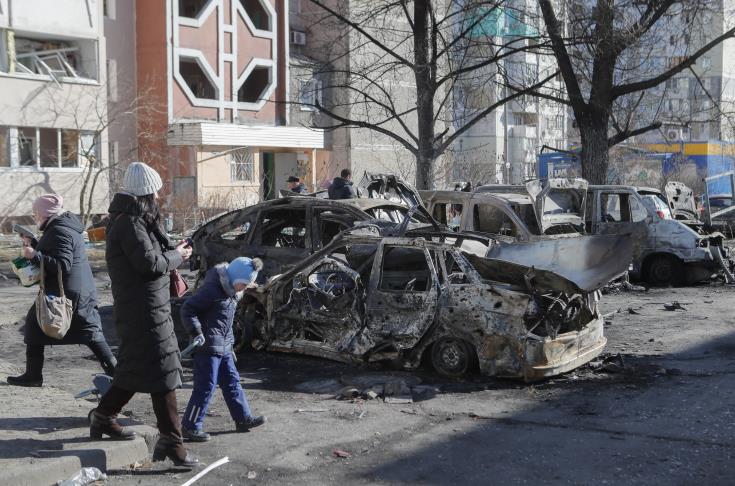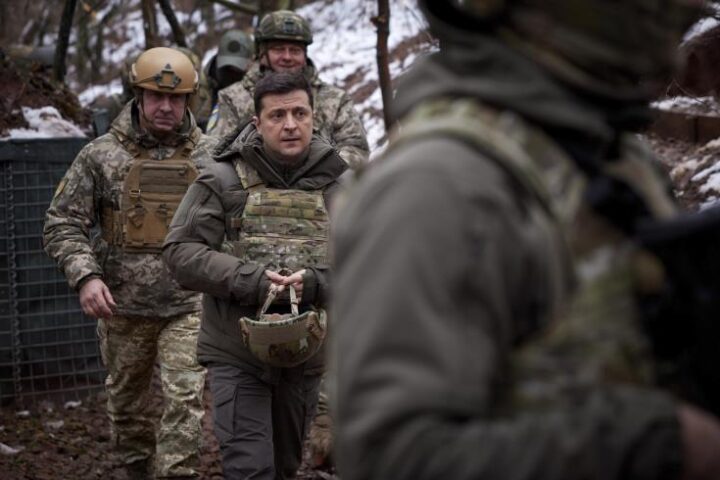Vladimir Putin, the architect of the war in Ukraine, is taking his anger out on civilians and the country’s major energy infrastructure, firing scores of missiles at major cities, killing dozens and wounding more.
He took vengeance for blowing up the Kerch bridge two weeks ago on multistorey residential buildings in Kyiv, Mykolaiv and Kharkiv.
Russian missiles also found their mark at the energy infrastructure of Dnipro and the power supply facility on the left bank of Kyiv.
A series of explosions rocked other cities, followed by renewed efforts by the Ukrainian army to push back the occupying forces in the east and south of the country.
Now Kherson, a strategic city in the south, has been ordered by the new Russian general to be evacuated, and Russian troops are fleeing only with their equipment this time.
Putin was now waging war in ways reminiscent of the Nazis when they used V1 and V2 rockets after 1944 to target London when it became clear they were about to lose.
Hitler called those types of rockets ‘vengeance weapons’.
Their deployment made no difference in the war effort of the allied forces other than strengthening their resolve to get rid of Hitler and his Nazi war machine.
As Putin loses ground, equipment, and men on nearly every front, he becomes more frustrated but also weak internally, as more Russians are taking to the streets or fleeing his latest military draft to avoid being slaughtered in a losing colonial war without any purpose other than making Putin great again.
Germany
German Chancellor Scholz also blasted Putin’s “scorched earth” policies in Ukraine and European gas supply shortages that aimed to disrupt economic activity and cause disagreements among allies and partners in the west.
Speaking before parliament on Thursday, Olaf Scholz said that Germany had freed itself from Russian gas supply dependence and efforts are underway to bring down energy prices. Germany is currently a major European arms supplier to Ukraine.
Its new leadership pledged €100 bln in a rearmament programme that effectively ended its policy since the end of WWII of having a small army and not interfering militarily in conflicts around the world.
Germany is implementing a circular exchange of tanks by donating advanced German tanks to Greece, Slovakia, Slovenia, and the Czech Republic in exchange for those countries sending their old Soviet-era tanks to Ukraine, which they can use immediately due to their familiarity.
This policy has earned Germany much support and respect within NATO and European allies.
Putin’s increasing aggression and nuclear threats are a source of concern that NATO is taking seriously.
US President Joe Biden said last week that Putin is “a rational actor who’s miscalculated significantly”.
Such miscalculations and erratic decisions became more common with the Nazis during the last phases of the war.
Playbook
True to Hitler’s playbook, Putin is changing commanders in a bid to change the course of the war. The new commander is General Sergey Surovikin, who was imprisoned following the failed coup in Moscow in the 1990s.
He was stationed in Syria, where he led a ruthless campaign on the side of Bashar al-Assad, who is still leading a puppet regime that allowed Russia to operate sea and land bases for years.
Surovikin is seen as a tough general who can deliver more atrocities than victories for Putin. However, Hitler also fired seasoned generals like Guderian.
The latter disagreed with him or reported the reality of the battleground without fiction and appointed in their place Nazi loyalists notorious for their brutality rather than their military prowess.
Surovikin’s appointment comes when Putin’s forces are on the retreat and suffering one humiliating defeat after another by an inferior force whose greatest weapon is their resolve to kick the enemy out of their country and restore its territorial integrity with the military and moral support of its European neighbours and other NATO countries.
The United States has been leading the effort from the start of the war to keep Ukraine a democratic and free nation and pledged billions of dollars in military and other aid to help restore human rights and international law so ruthlessly violated by Russia, a permanent member of the United Nations Security Council.
Calls for the removal of Russia from the Security Council are growing.
However, it appears to be a difficult option.
Some suggest that denying Russian diplomats entrance into the United States and Switzerland, where the UN has its headquarters, is possibly a way for their de facto removal.










